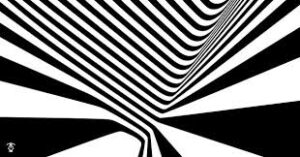
Unless you are talking haiku or senryū, short poems are scary. When you write them, you reread your work and feel a bit like an Italian grandmother looking at her skinny grandson, all skin and bones. Naturally, you want to put some meat on this weak thing. Feed it pasta and bread. Give it the nourishment of more words.
But sometimes, short poems are fine. You just have to trust them. I often arrive at my shortest poems by finally throwing out swaths of the larger poem it once was. Lines, stanzas, all deleted in the name of brevity because, paradoxically, what’s left does as much or more.
Brevity, when it works, is a powerful little shot. When it works. Sure, there’s always the danger of readers wanting more. These readers are not content with Hemingway’s iceberg theory applied to poetry (only show a little, let the reader infer the rest). But you are the ultimate arbiter. This is your skinny grandson, no?
Of course, long poems can be scary, too. “Howl” and “Leaves of Grass” notwithstanding, some readers wade in and start to drown in words. Is all of this necessary, they ask? Does the poet lack discipline?
Some beginning poets shy away from both the long and the short of it. They seek the safety of the middle, and their shortest efforts often begin in the 14-line realm of the sonnet.
Why, though? Short poems can be fun, and some topics work just fine with a brief snapshot of verse. And, for a stream-of-consciousness type work, what better than a meandering poem with voice?
As an example of a short poem that gets over the hill on its own, check out the following from Aracelis Girmay. It is called “Ars Poetica,” a popular title meaning “The Art of Poetry” which, thank the Muses, you are as free to define as the next poet.
Ars Poetica
Aracelis Girmay
May the poems be
the little snail’s trail.
Everywhere I go,
every inch: quiet record
of the foot’s silver prayer.
I lived once.
Thank you.
It was here.



